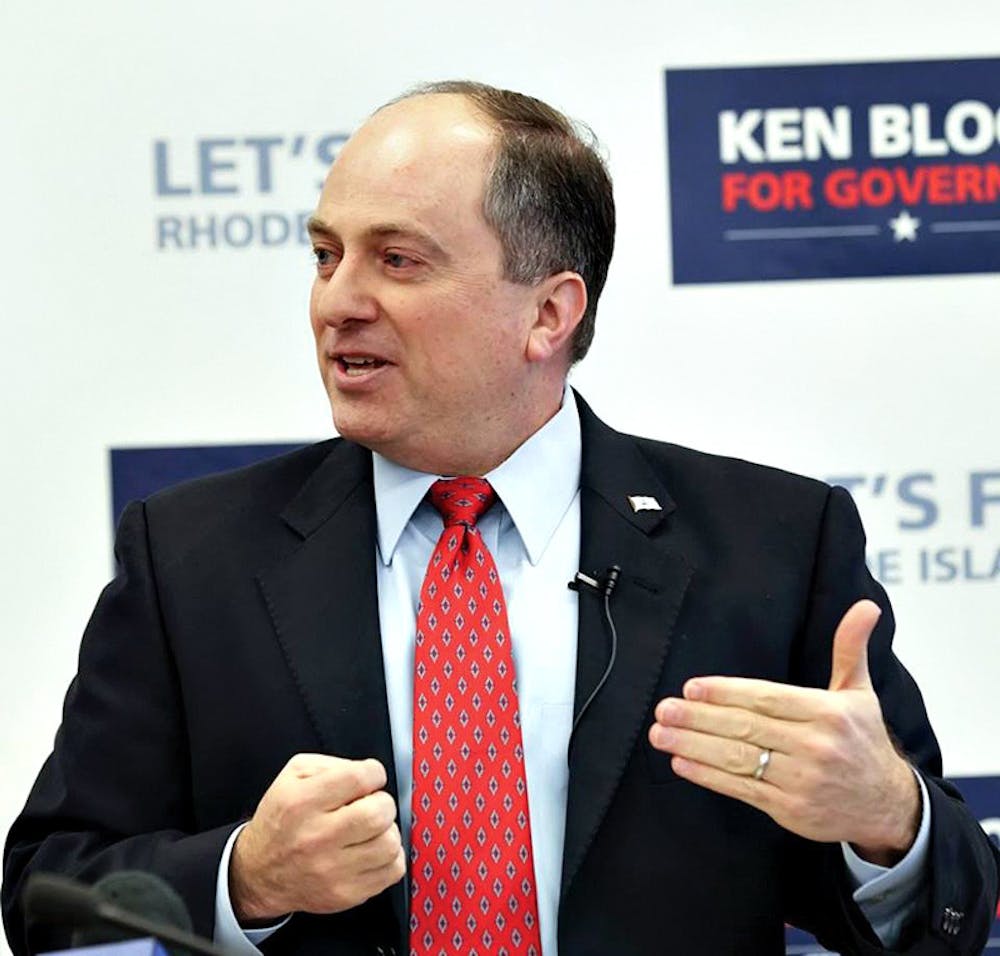Republican gubernatorial candidate Ken Block launched a new stage of his campaign with the announcement of a plan to transform the state’s tax system, reduce government spending and instate multiple government reforms last week.
Block, a 2010 gubernatorial candidate for the Moderate Party, is poised to face Cranston Mayor Allan Fung in the September Primary. Democratic contenders for the seat include Mayor Angel Taveras, General Treasurer Gina Raimondo, Clay Pell — political newcomer and grandson of United States Senator Claiborne Pell, D-R.I. — and contractor Todd Giroux.
Scott MacKay, Rhode Island Public Radio political analyst, said Block’s plan is in line with a campaign aiming to appeal to the state’s small business community.
“With 11 percent of Rhode Island voters as registered Republicans, the Republican primary in Rhode Island is a very small universe. You can win that primary in as few as 15,000 votes,” MacKay said, citing the 1994 Republican primary’s record-high turnout of only 44,000 votes.
Block’s plan proposes measures to uncover and reduce “wasteful spending,” particularly in the temporary disability insurance program and the unemployment insurance system, according to the plan’s text. It also proposes reducing the car tax rate and corporate tax rate, decreasing sales tax in border communities, eliminating the minimum corporate tax for new businesses, reducing and reforming the estate tax and eliminating the capital gains tax for investments held for at least three years.
Block also outlined a number of government reforms, including the addition of a line-item veto for the governor, bolstering the authority of the Rhode Island Ethics Commission, promoting greater transparency in the legislative process and eradicating the master lever voting mechanism, which allows Rhode Islanders to vote for all candidates of their chosen political party on a ballot at once.
"I would like to get it all done within a year,” Block said.
Block said his plan will revive the economy by transforming Rhode Island into a place where businesses can thrive. “My accountant has been telling me to move my business to Massachusetts for the past 10 years,” Block said. “Businesses act rationally. They choose to operate in the environment that is best for them.”
According to the plan, the proposed tax reductions would make Rhode Island’s corporate tax rate and minimum corporate tax for new businesses the lowest in New England. And Block estimates that by cutting the temporary disability insurance program in half, he could reduce state spending by $80 million.
Block cited his experience as an engineer and president of a computer software company as a comparative advantage in locating areas of wasteful spending. “Politicians haven’t previously addressed these issues because they’re unaware of them,” Block said, adding, “Politicians are not experts in how organizations operate.”
“Block is a computer software genius with a record at probing these things,” MacKay said, adding Block made a “big splash” in discovering instances of food stamp fraud in the state. Block’s report, released in March of last year, identified $1.7 million in food stamp and Medicaid benefits not reported to the Providence Housing Authority, according to the Providence Journal.
But despite Block’s potential assets, if elected, his plan may not be realized. “It’s very difficult to get proposals of this nature through legislature,” MacKay said.
Block is not the first to propose such changes, MacKay said. “Every politician has been saying they will target wasteful spending — it’s become almost cliche.”
Gov. Lincoln Chafee ’75 P’14 P’17 proposed an identical reduction of the corporate tax rate from 9 to 7 percent last year but was unable to gain support in the General Assembly, WPRI reported.
Block said his plan to jumpstart the economy will benefit not only small business owners but also Rhode Island as a whole, adding that it could have particular value for college graduates. “We have world-class academic institutions which have every ability to provide the intellectual capital that we need … our economic climate prevents a lot of graduates from realizing their entrepreneurial dreams here,” Block said. “They go elsewhere to do it.”

ADVERTISEMENT




